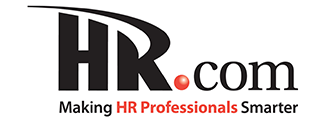Companies across the world are recognizing the need to take clear action
The Black Lives Matter and MeToo movements have accelerated diversity and inclusion practices within thousands of organizations. These movements have been a catalyst for a renewed and explicit commitment to building and bolstering an inclusive culture. The global conversation is evolving beyond just sourcing diverse candidates or implementing Business Resource Groups. More than ever, belonging is an essential part of true inclusive cultures. Inclusion defines practices which respect and invite various spectrums of diversity. On the other hand, belonging places an emphasis on how well those practices help diverse talent show up as their true authentic selves to do their best work. Companies across the world are recognizing the need to take clear action which results in meaningful inclusion and belonging for all talent in the organization.
Organizations are increasingly turning to structured mentoring programs as a proven and effective talent development tool. Ninety percent of DiversityInc’s Top 50 companies are using mentoring to retain and promote their diverse talent as well as reinforce inclusive cultures. Now, organizations are realizing how impactful mentoring programs can be in providing both communities for diverse talent supporting each other, as well as connecting across differences.
Mentoring programs have been used for decades to build relationships up and down the organizational chart. However, companies are now focused on mentoring’s unique ability to connect individuals across different aspects of identity and experience, which promotes awareness and breaks down unconscious bias. Mentoring programs are also a primary means of building community between employees who share aspects of identity and their allies.
Organizations are recognizing that establishing community and connection for inclusion does not typically happen organically. Structured mentoring programs provide helpful guidance and accountability for both program leaders and participants. In order to launch and manage these programs effectively and efficiently, mentoring software platforms are used to automate much of the process. Matching algorithms within mentoring software prioritize connections based on shared aspects of identity. For example, many companies are launching Black Lives Matter mentoring groups to bolster community for Black and African-American employees and their allies. Often, these programs are aligned with Employee Resource Groups (ERGs) or Business Resource Groups (BRGs) and enable the important work of those groups in the virtual environment.
Of course, the reverse approach of specifically matching mentoring relationships based on differences in identity is also gaining momentum as organizations look to find ways to promote inclusion and belonging, especially with today’s remote workforce. Creative approaches to mentoring programs, such as cross-functional groups and mentoring circles are being used to match employees from different backgrounds and across differences in the organizational level, country/region, gender, and race. These mentoring groups are actively engaging in discussions about complex D&I topics, especially as they navigate new realities in a mostly virtual world of work.
Nielsen, a global data and analytics company and MentorcliQ customer, is one organization that has taken a bold new approach to mentoring programs. Within weeks of having a significant number of their 44,000 employees in over 90 countries newly remote, Nielsen demonstrated agility and innovation. The Diversity & Inclusion team held virtual town halls with employees and listened to requests for more opportunities to connect, collaborate, and build community. Nielsen responded with a Quick Connections program hosted on the MentorcliQ platform, a software application already widely used across the company for other mentoring programs. The mobile app helps employees from across geographies and functions connect on shared interests or professional topics. The flexibility of Quick Connections allows Nielsen employees to connect with someone else when they need it, meet for as long as they need, and end the mentoring relationship when it has run its course.
Many organizations, like Nielsen, are using multiple mentoring programs to support employees in different ways. The Quick Connections program discussed here was implemented to provide a way for employees to connect virtually with others they wouldn’t otherwise have the opportunity to meet. However, Quick Connections supplemented an already robust professional development mentoring program.
Nielsen’s programs, and others like them, built for peer communities or connecting across differences are using software platforms in innovative ways. Mentoring programs have emerged as the most effective tool companies have to not only build an inclusive culture, but truly make progress towards a sense of belonging for all employees. Companies continue to evolve their expectations and accountability when it comes to gender, race, and other aspects of diversity. More than at any time in the past, organizations are committing to take meaningful steps towards Diversity, Inclusion and Belonging, and mentoring programs are the key.




